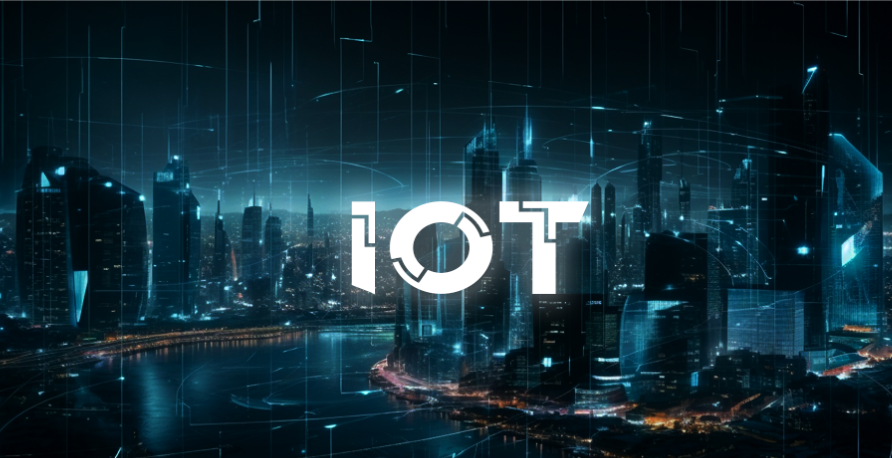Introduction
In recent years, the Internet of Things (IoT) has gained significant traction across various industries, revolutionising the way we interact with technology and shaping the future of smart cities. One area that has witnessed a remarkable transformation due to IoT is Building Management Systems (BMS). IoT integration in BMS has opened up a plethora of opportunities for energy efficiency, cost savings, improved occupant experience, and streamlined operations. However, along with these opportunities, several challenges need to be addressed to ensure successful implementation. This blog explores the rise of IoT in building management systems and discusses the challenges associated with its adoption.
Understanding Building Management Systems (BMS)
Before we explore the impact of IoT on building management systems, it’s crucial to understand what these systems entail. Building Management Systems are centralized platforms that oversee and regulate various building services, including HVAC, lighting, security, and more. These systems empower facility managers to optimize energy consumption, guarantee occupant comfort, and streamline maintenance operations through automation and data-driven insights. By integrating sensors, controls, and advanced analytics, BMS enables efficient resource allocation, proactive maintenance, and a more seamless and comfortable experience for building occupants.
The Emergence of IoT in Building Management Systems
The emergence of IoT in building management systems has brought about a significant revolution. It has allowed for the integration of previously separate building systems and devices, resulting in a network of interconnected sensors, actuators, and controllers. This integration harnesses the power of data and connectivity to transform conventional buildings into smart and intelligent structures. By leveraging IoT technology, building managers can now monitor and control various aspects of the building, optimize energy usage, enhance occupant comfort, and streamline maintenance operations. The advent of IoT has opened up a world of possibilities for creating efficient, sustainable, and user-friendly buildings.
Opportunities Offered by IoT in Building Management Systems
Energy Efficiency and Sustainability
IoT-enabled BMS allows real-time monitoring and control of energy-consuming devices, optimizing their usage based on occupancy, external factors, and energy demand patterns. This results in significant energy savings, reduced carbon footprint, and enhanced sustainability.
Enhanced Monitoring and Control
IoT sensors collect a vast amount of data related to temperature, humidity, air quality, occupancy, and more. This data enables proactive monitoring and control of building systems, leading to improved comfort levels, efficient maintenance, and quick issue identification and resolution.
Predictive Maintenance and Reduced Downtime
By leveraging IoT, BMS can employ predictive maintenance algorithms that analyse sensor data to detect potential equipment failures before they occur. This proactive approach minimises downtime, optimizes maintenance schedules, and reduces overall operational costs.
Improved Occupant Experience
IoT integration enables personalized and adaptive environments for building occupants. Smart lighting, temperature control, and personalized settings enhance comfort and productivity, creating a positive occupant experience.
Cost Savings and Return on Investment
Implementing IoT in BMS offers significant cost savings and a favourable return on investment. By optimising energy consumption, reducing maintenance costs, and improving operational efficiency, organisations can achieve long-term financial benefits. Additionally, IoT-enabled BMS solutions often provide valuable insights and analytics that aid in identifying areas for further cost optimization and resource allocation.
Challenges in Implementing IoT in Building Management Systems
Implementing IoT in building management systems presents several challenges that must be addressed for successful integration.
Integration and Interoperability
Integrating IoT devices from different manufacturers and ensuring seamless interoperability can be complex. Standardisation efforts and protocols are crucial to ensure compatibility and smooth communication between various systems and devices, avoiding interoperability issues.
Scalability and Infrastructure Requirements
Scaling up IoT-enabled BMS across large buildings or multiple facilities can pose infrastructure challenges. Adequate network connectivity, data storage, and processing capabilities are necessary to handle the influx of data from numerous sensors and devices.
Skill Gap and Workforce Training
The successful implementation of IoT in BMS requires skilled professionals who can design, deploy, and maintain the system. Bridging the skill gap and providing proper training to the workforce is vital to leverage the full potential of IoT technology in building management.
Addressing these challenges requires a proactive approach and careful consideration during the planning and implementation phases. Organisations must prioritize data security and privacy by implementing robust authentication, encryption, and access control mechanisms. Regular security audits and updates should be conducted to mitigate potential risks.
To overcome integration and interoperability challenges, organizations can adopt industry standards and protocols such as BACnet or MQTT. Collaborating with IoT solution providers who follow open standards can ensure compatibility and seamless integration between various devices and systems.
Scalability and infrastructure challenges can be addressed by designing a flexible architecture that can accommodate future growth. Organisations should invest in robust network infrastructure, data storage, and processing capabilities to handle the increasing volume of data generated by IoT devices.
Closing the skill gap requires training programs and professional development initiatives for the workforce. Providing training on IoT technologies, data analytics, and cybersecurity can equip employees with the necessary skills to effectively manage and maintain IoT-enabled BMS.
While IoT integration in building management systems offers numerous opportunities, organizations must address the challenges of security, interoperability, scalability, and workforce training. By implementing robust security measures, adopting industry standards, investing in scalable infrastructure, and upskilling the workforce, organisations can successfully overcome these challenges and fully leverage the benefits of IoT in building management systems.














